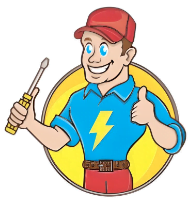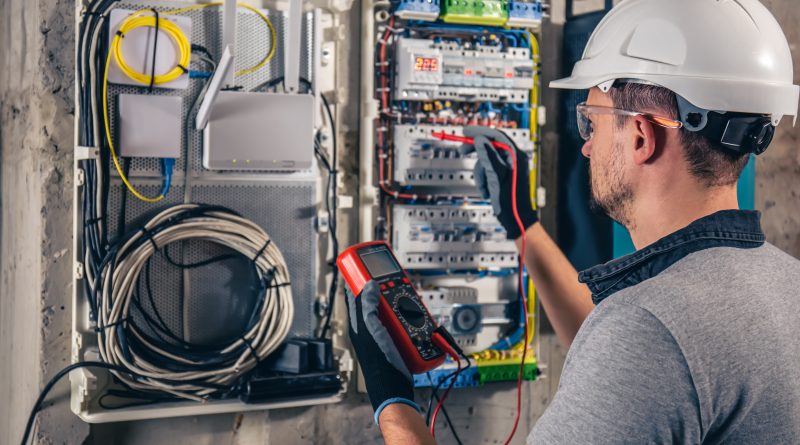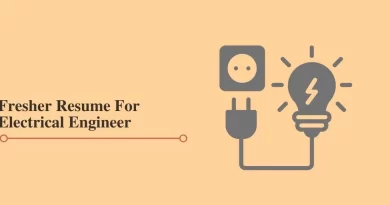How to Network and Build Connections in the Electrical Engineering Industry
How to Network and Build Connections in the Electrical Engineering Industry
Networking and building connections are essential for any professional, especially electrical engineers. Electrical engineering is a diverse and dynamic field that offers many opportunities for learning, growth, and collaboration. By networking and building connections with other electrical engineers, you can:
- Expand your knowledge and skills by learning from experts, mentors, peers, etc.
- Enhance your reputation and credibility by showcasing your achievements, projects, publications, etc.
- Explore new opportunities and challenges by learning about the latest trends, developments, issues, etc.
- Access valuable resources and support by getting referrals, recommendations, feedback, advice, etc.
- Create meaningful relationships and friendships by sharing your interests, passions, goals, etc.
However, networking and building connections in the electrical engineering industry can also be challenging and intimidating. You may face various barriers and obstacles, such as:
- Lack of time and motivation to network and build connections
- Lack of confidence and communication skills to network and build connections
- Lack of access and exposure to relevant and diverse networks and connections
- Lack of strategy and direction to network and build relationships effectively
How can you overcome these challenges and master the art of networking and building connections in the electrical engineering industry? This blog post will share tips and strategies to help you network and build connections in the electrical engineering industry. We will also recommend some of the best platforms and resources that you can use to network and build connections in the electrical engineering industry.
Tips and Strategies for Networking and Building Connections in the Electrical Engineering Industry
Here are some tips and strategies that can help you network and build connections in the electrical engineering industry:
- Define your goals:
Before you start networking and building connections, you must define your goals and objectives. What do you want to achieve by networking and building relationships? What kind of networks and connections do you want to create? How can they help you advance your career or personal development? By defining your goals, you can focus your efforts and resources on the most relevant and beneficial networks and connections for you.
- Identify your target audience:
After you define your goals, you must identify your target audience. Who are the people that you want to network and build connections with? What are their backgrounds, interests, values, needs, etc.? Where can you find them? How can you reach out to them? By identifying your target audience, you can tailor your approach and message to suit their preferences and expectations.
- Create your brand:
Before you network and build connections, you need to create your brand. Your brand is how you present yourself to others. It includes your identity, values, skills, achievements, personality, etc. Your brand should reflect who you are, what you do, what you offer, what you stand for, etc. By creating your brand, you can showcase your value proposition and differentiate yourself from others.
- Leverage online platforms:
One of the best ways to network and build connections in the electrical engineering industry is to leverage online platforms to help you connect with other electrical engineers across different locations and platforms. Online platforms can offer various features and benefits, such as:
-
- Profiles:
You can create or update your profile on online platforms to display your brand, such as your name, photo, bio, education, work experience, skills, achievements, projects, publications, etc.
-
- Content:
You can create or consume content on online platforms to share or learn information, insights, opinions, tips, advice, etc., on various topics related to electrical engineering, such as research, innovation, trends, issues, etc.
-
- Communication:
You can communicate with other users on online platforms to interact or engage with them through various modes, such as messages, comments, likes, shares, etc.
-
- Networking:
You can network with other users on online platforms to create or join networks or groups that are relevant or beneficial for you, such as alumni networks, professional associations, interest groups, etc.
Some of the best online platforms for networking and building connections in the electrical engineering industry are:
is one of the most popular and professional online platforms for networking and building connections in any industry. LinkedIn allows you to create and update your profile, create and consume content, communicate with other users, and network through various features, such as connections, recommendations, endorsements, groups, events, etc. You can also use LinkedIn to find and apply for jobs, internships, projects, etc., in the electrical engineering industry.
This is one of the most specific and comprehensive online platforms for networking and building connections in the electrical engineering industry. IEEE Collabratec is a platform that connects you with other electrical engineers who are members of the IEEE (Institute of Electrical and Electronics Engineers), which is the world’s largest professional association for electrical engineers. IEEE Collabratec allows you to create and update your profile, create and consume content, communicate with other users, and network through various features, such as communities, projects, mentoring, webinars, etc. You can also use IEEE Collabratec to access and benefit from various IEEE resources and services, such as journals, magazines, conferences, standards, courses, etc.
- Quora:
This is one of the most popular and reputable online platforms for creating and consuming content in any industry. Quora is a platform that allows you to ask or answer questions on various topics related to electrical engineering, such as Electrical Engineering, Electronics, Power Systems, Embedded Systems, etc. Quora allows you to communicate with other users through comments, votes, messages, etc. Quora also allows you to network with other users by following topics, users, spaces, etc. You can also use Quora to showcase your expertise and credibility by writing high-quality, informative answers.
Frequently Asked Questions (FAQs)
1. Why is networking important for electrical engineers?
- Networking is crucial for career growth, gaining industry insights, and accessing opportunities within the electrical engineering field.
2. What are some effective ways to network as an electrical engineer?
- Effective networking methods include attending industry events, joining professional organizations, utilizing online platforms like LinkedIn, and participating in local engineering chapters.
3. How can I prepare for networking events in the electrical engineering industry?
- Prepare by researching attendees, having a well-crafted elevator pitch, and bringing business cards or a digital contact-sharing method.
4. Is it important to network within my specialization in electrical engineering?
- Yes, networking within your specialization can lead to more relevant connections and opportunities tailored to your career goals.
5. What role do professional organizations play in networking for electrical engineers?
- Professional organizations provide opportunities for networking, access to industry resources, and platforms for showcasing your expertise.
6. How can I make meaningful connections at industry conferences and events?
- Engage in conversations, ask insightful questions, and be a good listener. Follow up with new connections after the event.
7. Should I use social media for networking in the electrical engineering industry?
- Yes, platforms like LinkedIn are powerful tools for connecting with industry professionals, sharing knowledge, and staying updated on industry trends.
8. How can I maintain and nurture my network over time?
- Stay in touch with contacts through occasional emails, updates on your professional journey, and offering assistance when possible.
9. What are some common networking mistakes to avoid as an electrical engineer?
- Avoid being too self-promotional, neglecting to follow up with contacts, or failing to express gratitude for their time and assistance.
10. Can mentorship be a valuable networking strategy for electrical engineers?
- Yes, mentorship relationships often lead to valuable networking opportunities and professional guidance.
11. How can I use informational interviews to expand my network?
- Request informational interviews with industry professionals to learn from their experiences and establish connections.
12. Are there online forums or discussion groups specific to electrical engineering networking?
- Yes, platforms like IEEE Xplore and engineering-specific subreddits offer opportunities to engage in discussions and make connections.
13. What should I do if I’m an introvert and networking events are intimidating?
- Start by attending smaller, more intimate events, and practice your networking skills gradually. Focus on listening and asking questions to ease into conversations.
14. How can I leverage my network to find job opportunities in electrical engineering?
- Let your network know about your job search, update your LinkedIn profile, and ask for referrals or recommendations.
15. Can networking help me stay updated on industry trends in electrical engineering?
- Yes, staying connected to industry peers through networking can provide valuable insights into emerging technologies and trends.



